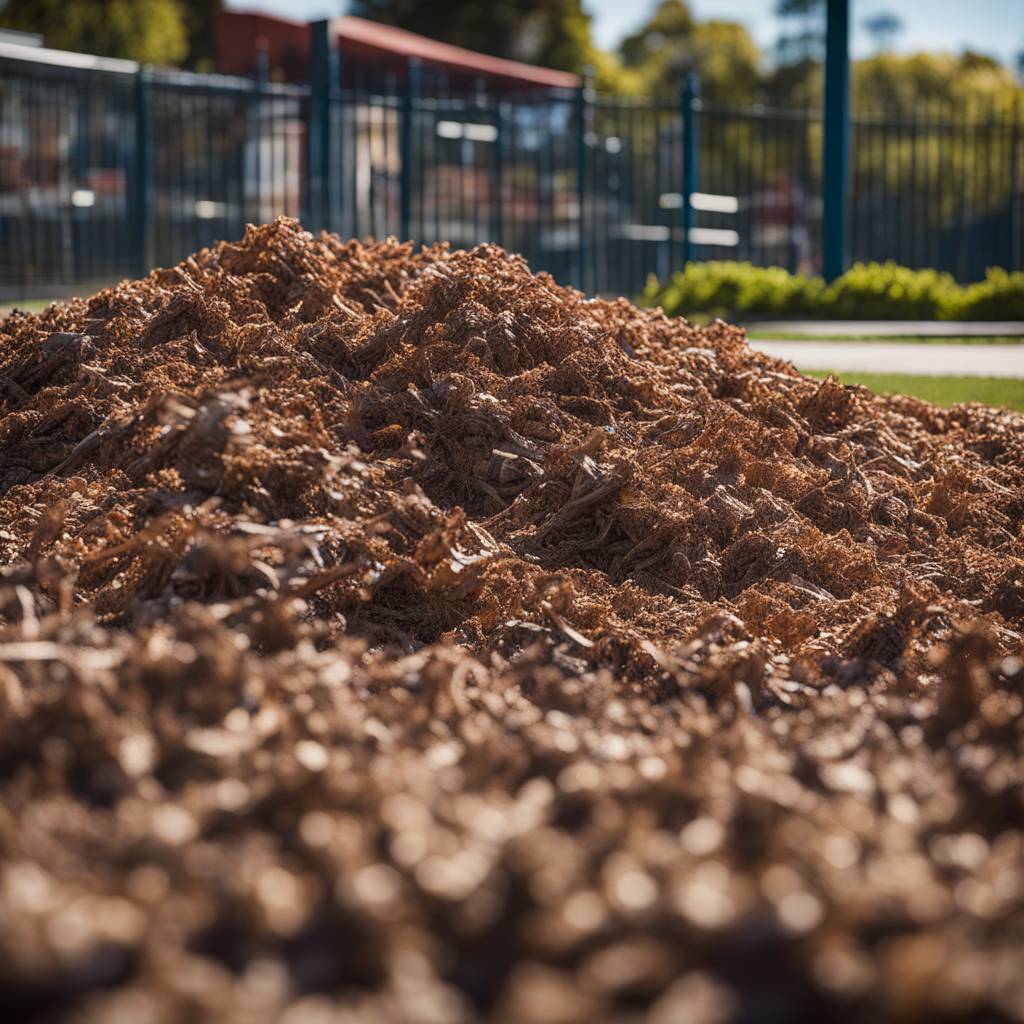Workers arrived late Saturday morning to erect more warning signs and stronger metal fencing – with yellow tape reading “CAUTION ASBESTOS” – covering a larger area across all three reserves. This action was taken in response to the discovery of asbestos-contaminated mulch at multiple parks in Hobsons Bay. The recycling of mulch from these reserves was sent for testing after the recent findings at Donald McLean Reserve in Spotswood. The council announced that they would work with a material hygienist and the Environment Protection Authority (EPA) Victoria to conduct remediation works on all affected sites. The EPA had previously stated that the contamination was confined to the original Spotswood park and was likely the result of illegal dumping. However, the council’s investigation revealed that multiple parks had been affected by the contaminated mulch.
Local Government Minister Melissa Horne confirmed that the council had extended their search beyond the original park and found additional sites with the contaminated mulch. While the risk to the public was deemed low as the asbestos product found was bonded, Horne emphasized the need for remediation. The supplier of the mulch has not been publicly identified, but CityWide Service Solutions was awarded the contract for the Donald McLean Reserve project in Spotswood. CityWide, chaired by former Labor premier John Brumby, stated that the mulch used at the reserve came from an external provider who was registered and accredited for such activities. Despite state funding for park upgrades through the West Gate Tunnel project, responsibility for contracting and maintenance lies with Hobsons Bay Council.
On Saturday morning, evidence of building waste, including unidentified compound material, was found in recycled mulch along the Kororoit Creek Trail. The area had not been roped off, raising concerns for public safety. Residents who frequent the area for walking, running, cycling, and family activities expressed their worries about the environmental impact and health risks posed by the contaminated mulch. John Allet, a local resident, shared his experience dealing with asbestos when it was discovered in a chicken coop on his father-in-law’s property. Allet highlighted the frustration of being unable to safely use public pathways despite paying rates for their upkeep.
The discovery of asbestos-contaminated mulch in multiple parks in Hobsons Bay prompted the council to take immediate action to protect public safety. Warning signs and stronger fencing were erected at these reserves, and plans for remediation works in collaboration with experts and the EPA were announced. Despite initial statements from the EPA suggesting that the contamination was limited to one park, the council’s investigation revealed a wider scope of affected sites. The supplier of the mulch remains unidentified, but CityWide Service Solutions, a subsidiary of the City of Melbourne, was responsible for the landscaping at the original park where the contamination was first discovered.
Residents and park users expressed concerns about the environmental and health implications of the contaminated mulch. The presence of building waste in recycled mulch along popular walking trails highlighted the potential risks faced by the community. Local residents, like John Allet, shared their experiences with asbestos and the measures taken to ensure safety in their own properties. The council’s response to the contamination raised questions about accountability in park upgrades and maintenance, particularly in projects funded by the state government. Moving forward, residents and authorities alike emphasized the importance of thorough testing, remediation, and transparency to ensure the safety of public spaces in the community.


